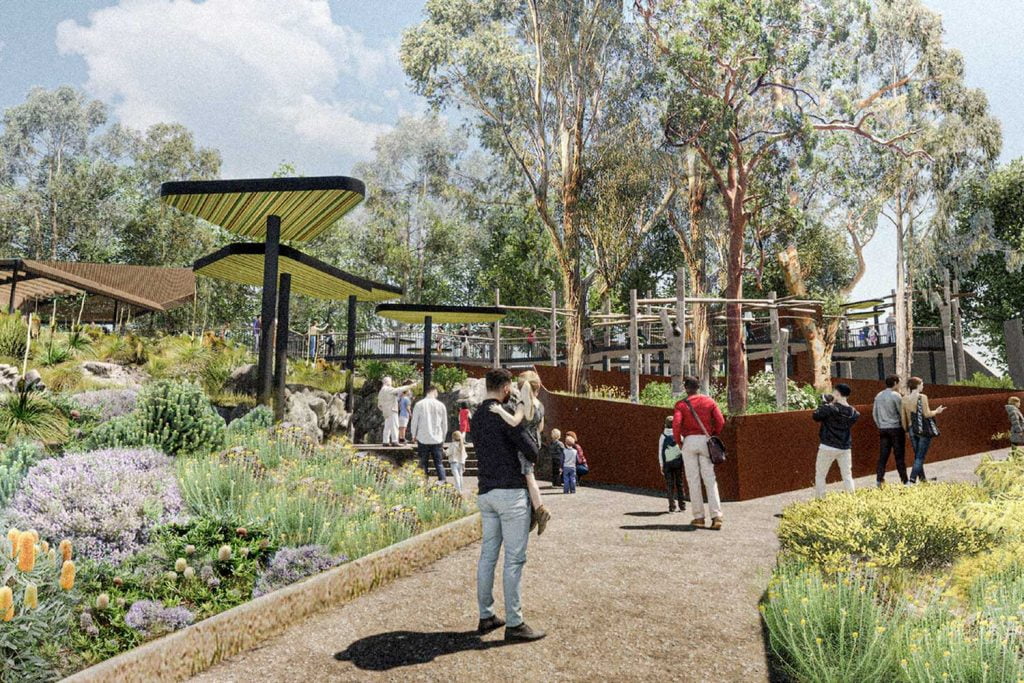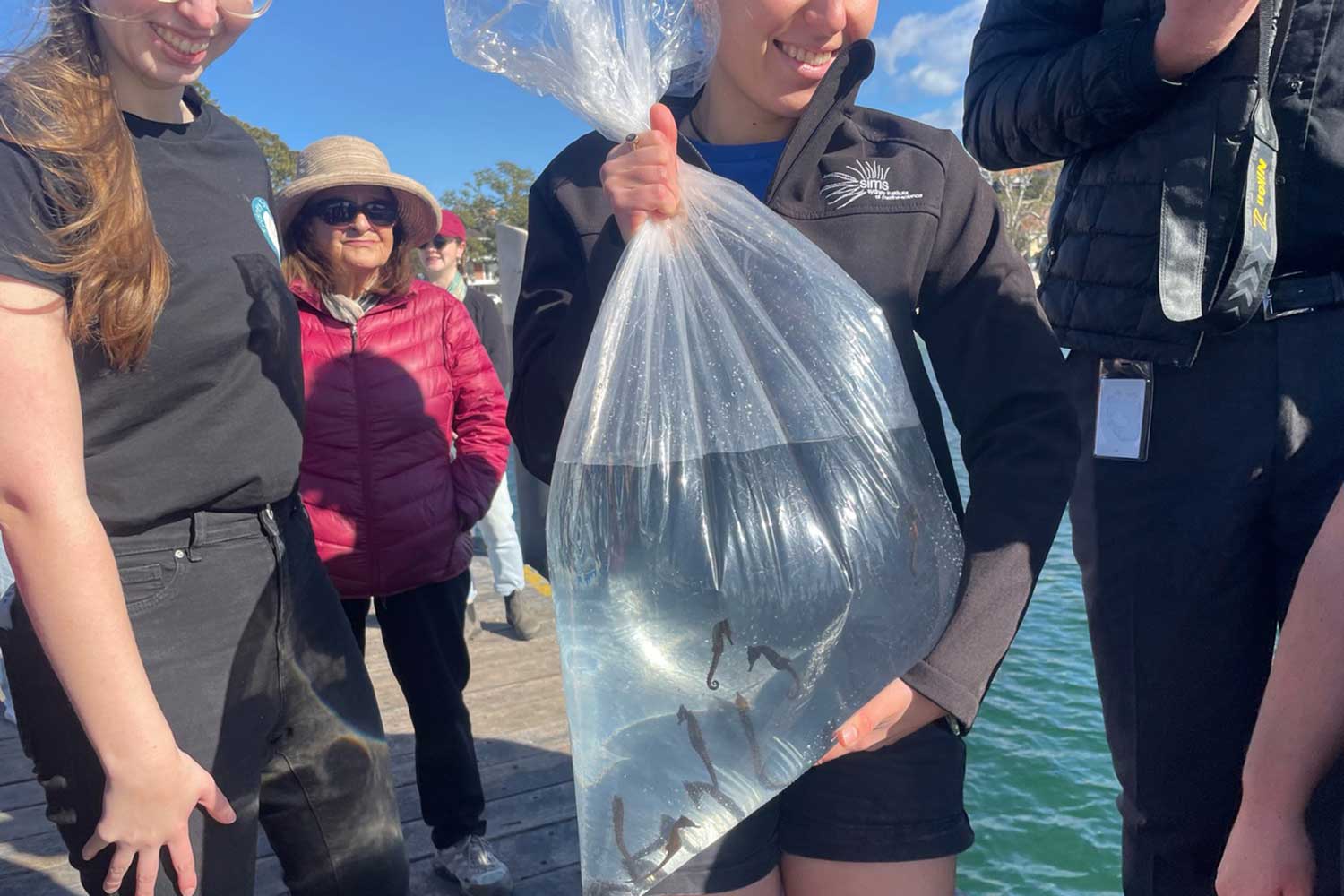Does talking to your house plants make them grow?

We’re thrilled to introduce local writer and mum-of-three Seetha Dodd, who joins the Mosman Collective team in 2021 to deliver unique observations of daily life on the lower north shore. You can read more of Seetha’s work on her blog, 3 little birds.

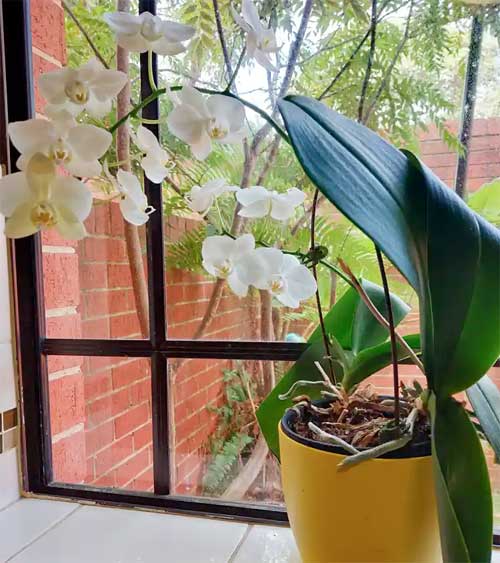
There is an orchid plant that lives on my kitchen windowsill. For the first two years in my care, she produced two flowers a year. When it comes to house plants, I am more brown- than green-thumbed, so this performance exceeded my expectations. I put it down to sheer luck (mine) and some serious willpower (the orchid’s). I was grateful for this two-flower miracle that survived despite my lack of gardening knowhow.
But last year was an anomaly. Like many of us, I spent many iso hours cooking, baking, singing and talking in the kitchen.
This meant my orchid was the recipient of an exponential amount of companionship and attention. She responded by producing 13 glorious flowers between May and October. I hadn’t upskilled, I was just there more, I noticed her more, and yes, I may have directed some conversation her way. But did her blossoming really have anything to do with my presence? Had she been responding to my voice?
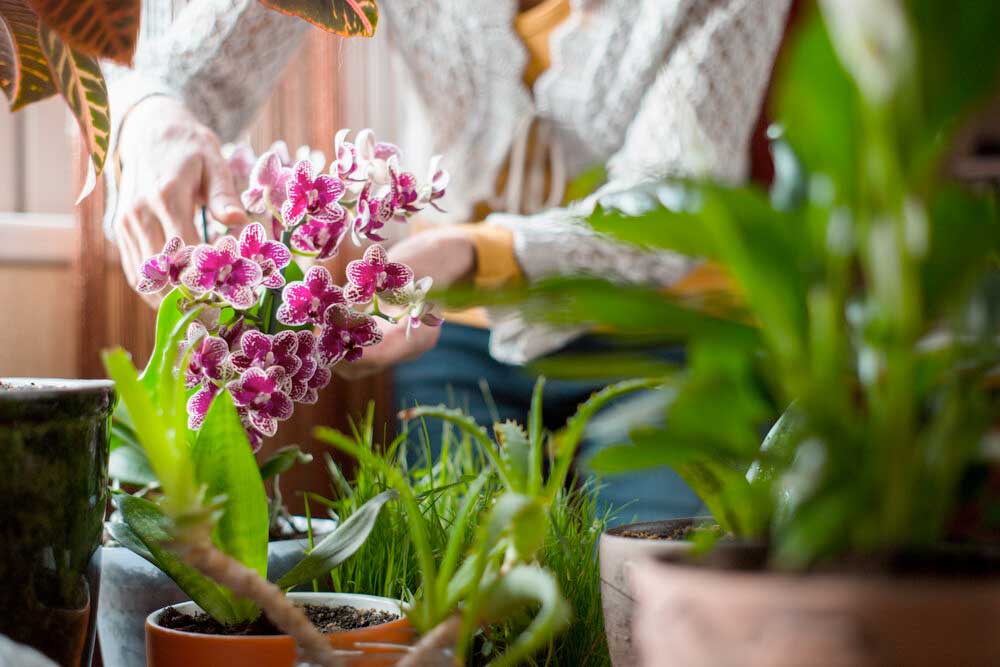
“Plants probably don’t hear like we do,” says Dr Dominique Hes, biophilia expert and lead researcher at Horticulture Innovation Australia’s Plant Life Balance. “But some research shows that speaking nicely to plants will support their growth, whereas yelling at them won’t. Rather than the meaning of words, however, this may have more to do with vibrations and volume. Plants react favourably to low levels of vibrations, around 115-250hz being ideal.”
Perhaps it was a combination of my dulcet tones and my taste in music? Could these good vibrations explain my orchid’s sudden vigour?
“Smithsonian and Nasa show that mild vibrations increase growth in plants while harsher, stronger vibrations have a negative effect,” Dr Hes explains. “The vibrations improve communication and photosynthesis, which improves growth and the ability to fight infection. You could say the plants are happy!”
Happy plants are also important to Rachel Okell, horticulturist and founder of the Sydney-based plant consultancy business Our Green Sanctuary. “I often talk to my plants when I’m looking at them,” she says. “I get excited when there is new growth – it means they are happy and I’m doing all the right things.”
Dr Hes says: “I think relationships are key here, whether it is how you speak, or you notice they need water, or new soil, or nutrients. Tone is also important, given they respond to vibrations.”
When it comes to our relationship with plants, Tim Pickles, horticulturist and owner of Tim’s Garden Centre in Campbelltown, south-western Sydney, certainly witnessed a shift last year. “People are falling in love with gardens,” he says. “They are looking for something to nurture and to love.”
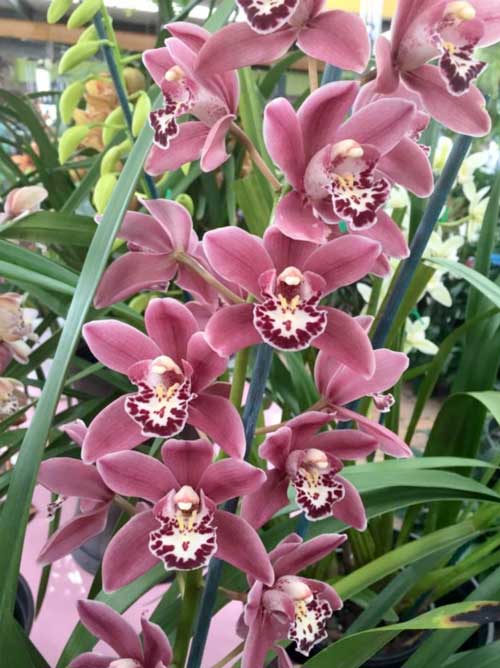
Image: Tim’s Garden Centre/Facebook.
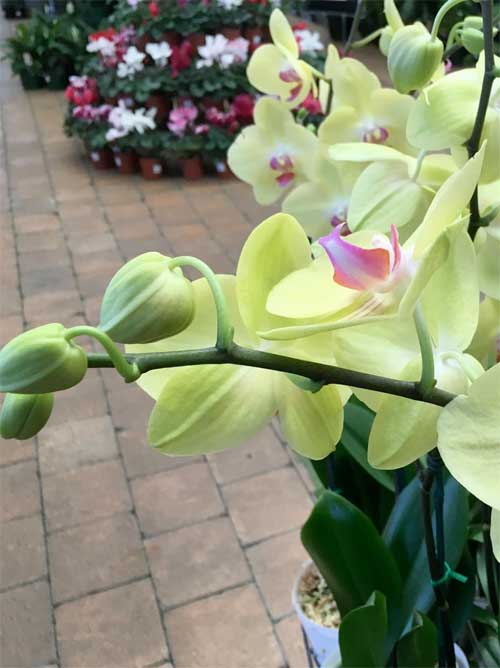
Image: Tim’s Garden Centre/Facebook.
Pickles believes the slower pace of 2020 gifted us with more time to think and breathe, making us more aware and more observant of what is around us.
Pickles’ theory may explain my orchid’s enthusiasm. Is she thriving because I’m talking to her, or simply because I am more attentive to her needs? With overwatering being one of the leading causes of death for houseplants, perhaps being home more has allowed me to notice, rather than to reach for the watering can in a hasty attempt to be a responsible plant parent.
Whether or not we believe that plants benefit from conversation, we cannot deny that something is in it for us. The therapeutic effects of plants and gardening have been widely documented – benefits include boosting our mood, sharpening our focus and lowering our stress levels.
But what if the idea of chatting to your plant-children feels like eccentric behaviour?
“If you look at the science, the vibrations, the biophilic connection and relationship building, then for me it is clear that spending time with plants is worthwhile,” He says. “For some that are talking, for some, it is playing music, it is just quietly having them with us as we work and relax.
kell agrees. She is reaping the benefits of her practice of caring for plants. “The routine of checking, dusting, rotating and watering my plants is meditative,” she says. “It has helped me remain calm and stay focused on the moment. There is also a sense of achievement when your plants flourish under your care. It’s so rewarding.”
As we edge into 2021, my orchid is still thriving. And because my fingers are not yet green, I can only attribute this to our daily interactions: the adoring looks, the greetings and check-ins, and the attention (both intentional and incidental). She listens in on my telephone conversations and is often my only audience for pre-dinner renditions of I Will Survive. She doesn’t join in, my orchid, but I think she’s feeling the love. I know I am.
This article is republished with the permission of Seetha Dodd. It first appeared in The Guardian on January 11, 2021.
Get The Latest News!
Don’t miss our top stories delivered FREE each Friday.


